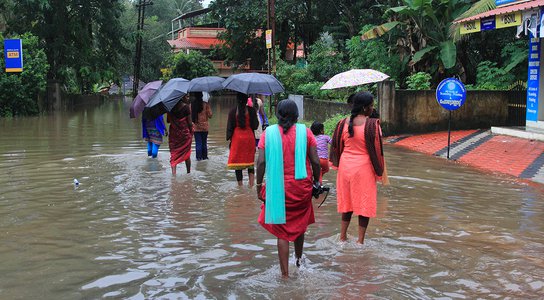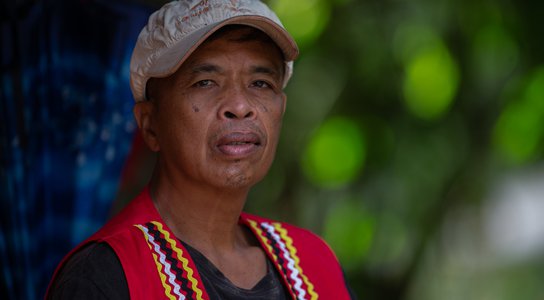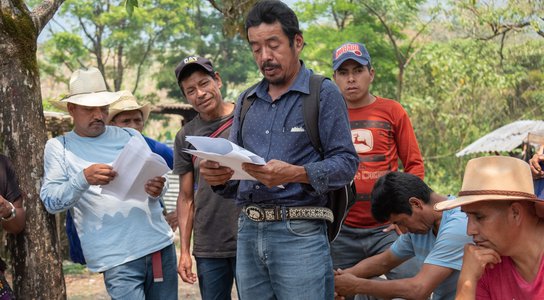As the world turns it head from Arctic fires, epic floods and the scalding drought of the summer, it rest its gaze momentarily on the IPCC report – increasingly a barometer for our success and failure on climate change.
For the first time in over a decade, the IPCC today issued a stand-alone report on land, one of the most comprehensive assessments on this issue and its link to climate breakdown.
A central message:
agriculture, forestry and other types of land use account for 23% of human
greenhouse gas emissions, but at the same time natural land processes absorb an equivalent of almost a third of all carbon dioxide emissions from fossil
fuels and industry. In short – land is under huge pressure from humans and
climate change – but a key part of the solution.
At Global Witness, we’ve been ringing the alarm bell on agribusiness and its impact on people and planet for some time – with far too much forest destroyed and far too many land and environmental defenders killed to fuel this booming industry. And as the IPCC Land report comes ahead of World Indigenous People’s Day, the role of these communities cannot be overstated.
We’ve long known that indigenous people are the most effective stewards of the rainforests which we need to fight carbon emissions. We’ve long known that communities are fighting against agribusiness destroying huge swathes of land every day. And we’ve long known that corrupt governments and businesses are criminalising, attacking and sometimes even killing these brave women and men on the frontline of environmental defence.
Yet still, the link between land and environmental defenders, and their critical role in saving the climate is too often forgotten.
Our new report showed more than three people were killed in an average week last year defending their land and the environment from invasion by industries like mining, logging and agribusiness.
One case, in the Philippines, could not be clearer about the link between products we consume every day and a ruthless scramble for land – with global food giant Dole Philippines at the centre of the story. In 2016 and 2017, the company exported bananas and banana products from the Philippines worth $647 million, with its main export markets in China, Japan and South Korea. The operations also have significant international backing.
Our report exposed how a local businessman called Romulo T. De Leon III is sub-leasing some of a local indigenous community’s ancestral lands to Dole Philippines to grow these bananas, with evidence and testimony we collected raising serious questions about the legality of this deal.
When members of this indigenous community protested, they saw some of their houses allegedly destroyed by armed security guards, who three days later went on to uproot the community’s crops, fired gunshots and threatened to kill several people.
“No one anticipated that the demolition would happen at dawn. We couldn’t do anything to stop it because of the huge number of police and soldiers there,” said Benedick Kilaan, a member of the community.
Such tactics are neither random nor isolated. Across the world, land and environmental defenders who are resisting forced evictions, land grabs and pollution from dams, mines, and palm oil or sugar plantations are targeted by state and corporate forces with a cocktail of physical and legal attacks, that appear designed to silence voices that challenge their interests.
These defenders are only going to become more important as we try and save the entire planet from a quickly accelerating climate breakdown. And it’s not just businesses, governments and investors that play a critical role: their fight serves every single person on the planet, so we must all support them and amplify their stories.
We hope the IPCC report marks a changing tide. That those with power driving these attacks will take heed of our recommendations and make real efforts to protect defenders as well as tackle the root causes of this appalling violence. It’s only by doing this that we have any chance of saving both the planet and its people from climate break down.
An unprecedented group of indigenous and community organizations and networks—representing 42 countries spanning 1.6 billion hectares of land, including 76 percent of the world’s tropical forest— have issued a statement highlighting the scientific evidence that they are the best guardians of the forest. Materials can be viewed at www.IPCCresponse.org in English, French, Spanish, and Portuguese.


